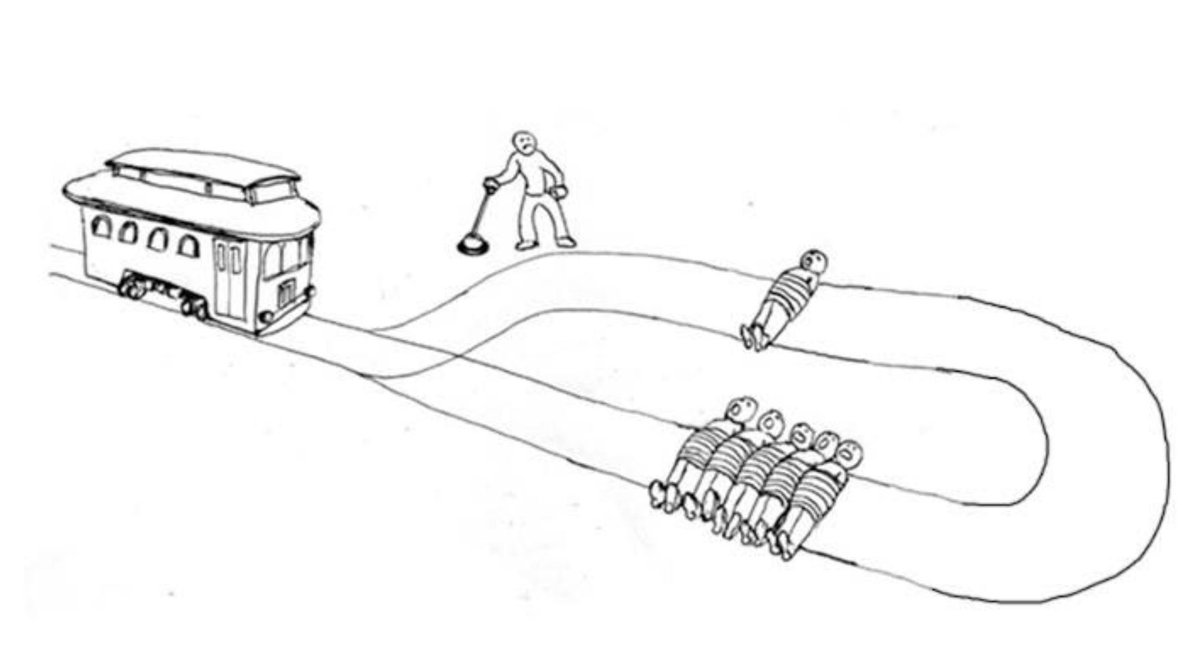
ON IRRATIONAL BEHAVIOR
There are three main reasons for irrational behavior.
Thread, 1/11
There are three main reasons for irrational behavior.
Thread, 1/11
The first one is an excessively-narrow definition of irrationality.
Example: playing a boardgame, your friend makes a move which is suboptimal to victory. Is he being irrational?
Only if winning at the game is all that matters. But maybe he's optimizing for friendship.
2/11
Example: playing a boardgame, your friend makes a move which is suboptimal to victory. Is he being irrational?
Only if winning at the game is all that matters. But maybe he's optimizing for friendship.
2/11
Another example: working overtime might get you ahead at work but also set you back in personal life.
In general, it's never rational to maximize performance at a given task. It's rational to maximize one's performance across all tasks. And sometimes, the two are at odds.
3/11
In general, it's never rational to maximize performance at a given task. It's rational to maximize one's performance across all tasks. And sometimes, the two are at odds.
3/11
Hence the importance of always using a very broad definition of rationality. Such as survival.
Designing a study with a narrow definition of survival tells us more about the irrationality of those designing it than about the rationality of its participants.
4/11
Designing a study with a narrow definition of survival tells us more about the irrationality of those designing it than about the rationality of its participants.
4/11
The second cause for irrational behavior is an artificial environment.
We perceive the environment through senses that evolved to be fit for our ancestors' environment, not ours
We take decisions with a brain that evolved to be fit for our ancestors' environment, not ours
5/11
We perceive the environment through senses that evolved to be fit for our ancestors' environment, not ours
We take decisions with a brain that evolved to be fit for our ancestors' environment, not ours
5/11
When our environment is hacked to take advantage of our tendencies, of course we might end up taking irrational decisions.
Such as eating that sugary donough just because in our ancestors' environment sugar brought survival.
6/11
Such as eating that sugary donough just because in our ancestors' environment sugar brought survival.
6/11
The third cause for irrational behavior is addiction. Addiction and similar "momentum-building" mechanisms such as moods are rational (see example below based on Rutledge, Dolan, and Niv 2016).
7/11
7/11

Ideally, we wouldn't get addicted to sugar & other things which are toxic in large doses.
But we evolved such propensities for a reason. Someone that doesn't crave sugar might put less energy into foraging fruits, for example, and develop malnutrition in some environments.
8/11
But we evolved such propensities for a reason. Someone that doesn't crave sugar might put less energy into foraging fruits, for example, and develop malnutrition in some environments.
8/11
There is a difference between whether a behavior is irrational and whether the tendency to generate such behavior is irrational.
In the example of craving for sugar, I'm irrational if I eat a sugary donut but my genes are not irrational for making me prone to crave sugar.
9/11
In the example of craving for sugar, I'm irrational if I eat a sugary donut but my genes are not irrational for making me prone to crave sugar.
9/11
I talk more about irrational behaviors in my book "The Control Heuristic, 2nd edition", which you can find at gum.co/heuristic
Here are some reviews: 11/11
Here are some reviews: 11/11

• • •
Missing some Tweet in this thread? You can try to
force a refresh





